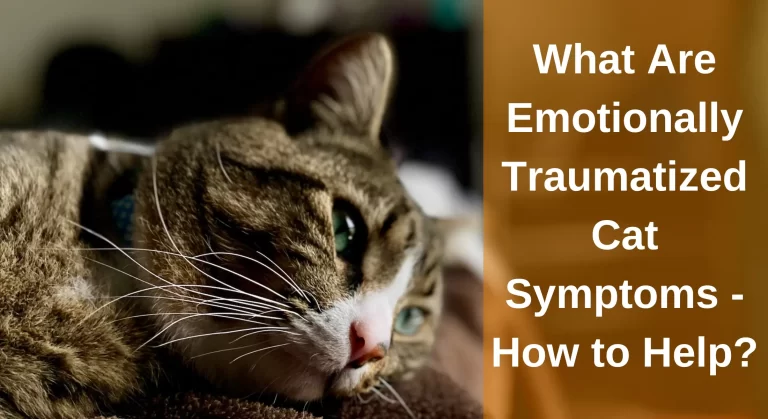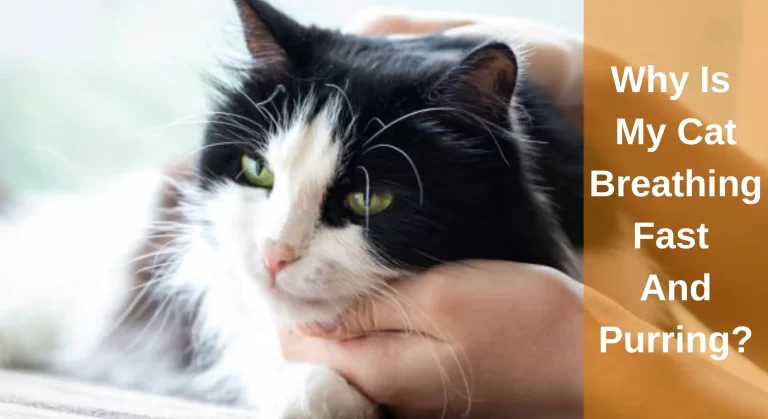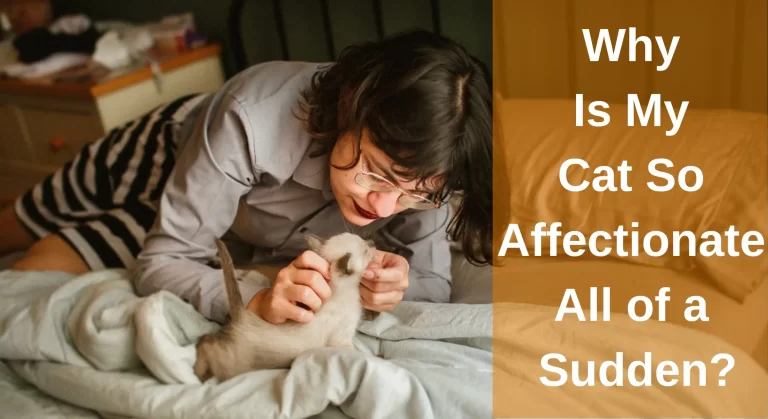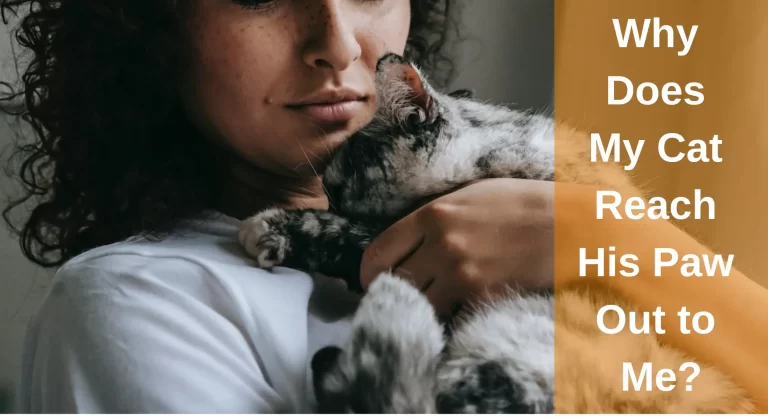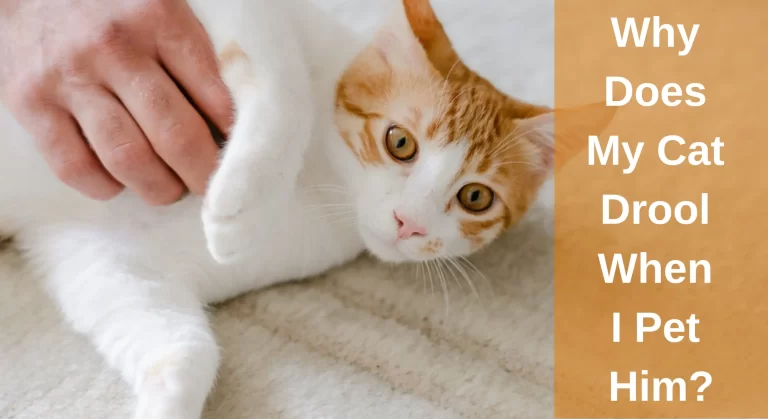Why Do Cats Cry Like A Baby At Night? Reasons You Should Know
Have you ever woken up in the middle of the night only to hear your cat crying like a baby? It can be a very alarming and frustrating experience, especially when you don’t know why your furry friend is making such a loud and distressing noise.
Cats cry like a baby at night for several reasons, including natural nocturnal instincts, attention-seeking behavior, loneliness, hunger, thirst, health issues, mating instinct, cognitive dysfunction, aging, and environmental factors.
In this article, we’ll explore the reasons why cats cry like a baby at night and what you can do to help them.
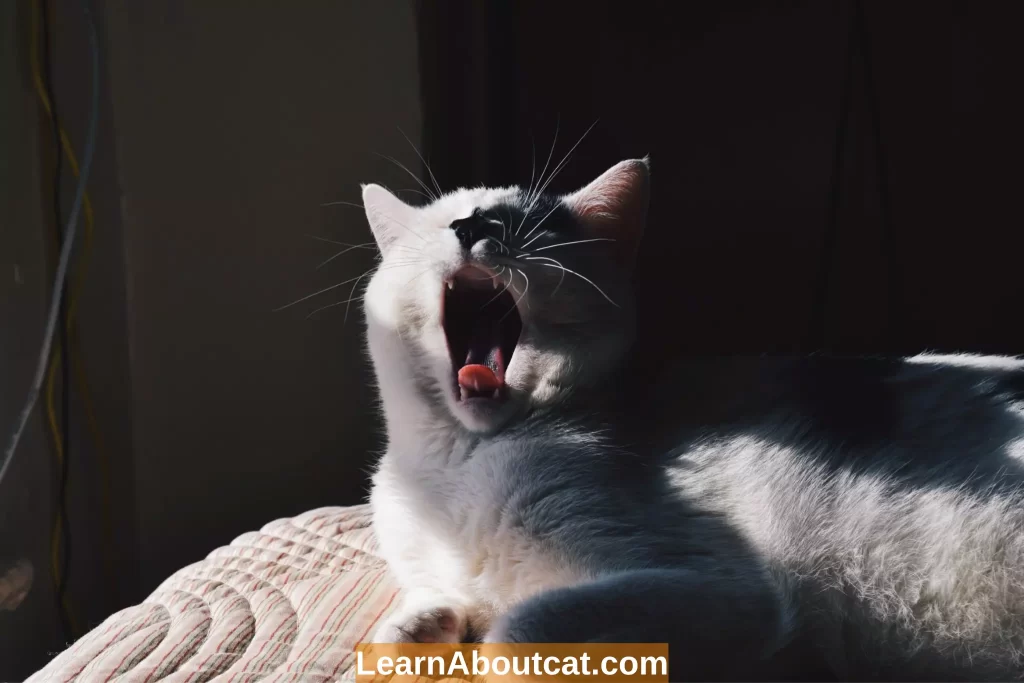
Understanding Cat Behavior
Cats are fascinating creatures with unique behaviors that are often hard to understand. If you want to understand why your cat cries like a baby at night, you must understand their behavior. To communicate a specific reaction, cats may change the pitch of their sounds from brief meows to extended screams.
Cats are known for their vocalizations and can communicate with us in various ways. Their purrs indicate happiness and hisses indicate anger, and their meows indicate they want our attention. They are active creatures who need to play and explore their surroundings. Furthermore, their territorial nature also requires their own space to feel secure and safe.
Top Reasons Why Do Cats Cry Like A Baby At Night
It can be confusing and worrying when your cat starts crying like a baby at night. There are several reasons cats do this, and it’s essential to understand the underlying cause to help them.
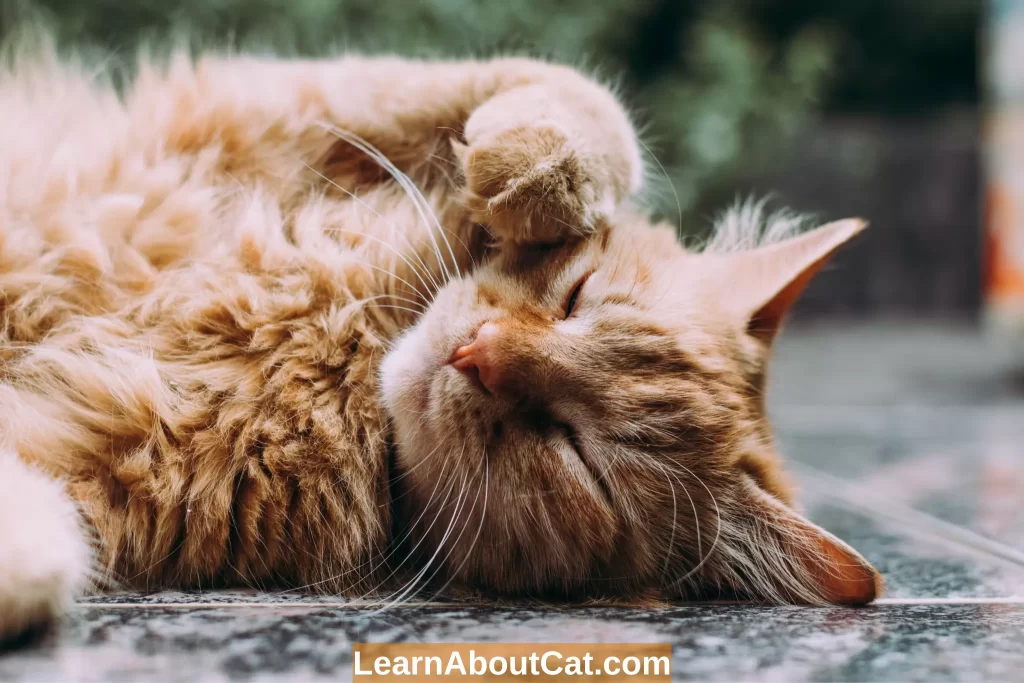
1. Cats are Nocturnal Animals
Felines are nocturnal creatures that are most active and meow at night. Your cat may cry at night because it’s their natural time to be active, and they may be bored or restless.
It’s not because they don’t want you to sleep in your beauty, but rather because they’re sad because they don’t know how to deal with it.
2. Attention Seeking
Cats are intelligent animals who know they can get our attention by meowing. If your cat is crying at night, it may be because they want your attention. It could be that they want to play or cuddle or try to tell you something is wrong with them.
It’s essential to pay attention to your cat’s meows and body language to understand what they’re trying to communicate.
Mostly, your cat meows (or screams) to get your attention. They communicate with you by saying, “Hey, look at me,.” When I neglect my cat, she starts crying. Even if she doesn’t paw my foot, she meows to let me know she’s around.
3. Hunger and Thirst
If your cat is crying loudly at night, it may be because they’re hungry or thirsty. It’s their way of saying, “Hey, I’m hungry; feed me!”
During the course of the day, cats need to eat several small meals because of their small stomachs. If your cat hasn’t had enough food or water, it may cry to tell you they’re hungry or thirsty.
4. Loneliness and Separation Anxiety
Cats are social animals who may feel lonely or anxious when left alone at night. If you work long hours or are away from home for extended periods, your cat may cry at night to express their loneliness.
Especially if your cat has been around you all the time, they commonly suffer from separation anxiety. They may cry if they miss you and desire to be with you at night.
When thinking of loneliness, isolation and loneliness are two words that come to mind. Cats weep out of loneliness and uncertainty. This is especially true for newly rehomed kittens.
They become increasingly vulnerable as they understand they are no longer a member of their mother’s litter. They weep because they are isolated and terrified.
5. Health Issues
If cats are in pain or uncomfortable, they may cry at night. When cats suffer from health issues, they may cry to express their discomfort.
Common health issues that may cause cats to cry at night include dental problems, arthritis, urinary tract infections, and gastrointestinal issues. You should contact your cat’s vet if you notice any other symptoms, such as vomiting or lethargy.
Make an appointment with a veterinarian if the behavior is unexplained or unexpected so that any physical explanations for the noises may be ruled out. Please keep track of when it happens and where it happens.
As a result, maintaining a notebook might help you see patterns and discuss them with your veterinarian.
6. Cognitive Dysfunction
Cognitive dysfunction is a common condition in older cats, and it can cause them to cry at night.
Cats with cognitive dysfunction may become disoriented, forgetful, and anxious, which can lead to vocalization at night.
If you suspect your cat has cognitive dysfunction, you should take them to the vet for a proper diagnosis and treatment.
7. Aging Process
As cats age, they may experience changes in their behavior and vocalization patterns. Older cats may cry at night because of a decline in their sensory perception or a medical condition accompanying aging.
It is important to monitor your cat’s behavior as they age and seek veterinary care if any changes are observed.
Check Out: Do Cats Get More Affectionate With Age?
8. Environmental Factors
It can be stressful and anxiety-provoking for cats if there is a change in their environment because cats are sensitive to their surroundings.
They are sensitive animals. Your cat might cry at night if you have moved recently, adopted a new pet, or changed their routines.
It’s essential to provide your cat a comfortable and safe environment to reduce their stress levels.
9. Her Territorial Impulses Might Be At Blame
Domestic cats with access to the outdoors often massage their bodies or spray urine to mark their territory.
On the other hand, indoor cats are unable to do such tasks. As a result, if an indoor cat sees another cat or animal outside the window, she may yowl and weep.
10. Is It Possible That It’s Time For Mating?
In the case of male cats who achieve puberty between four months and a year, when this happens, their body signals that it’s time to start reproducing, so he begins seeking a suitable female. Keep an eye on your newborn boy if he continues to act this way.
So, keep him locked up if you don’t want him to become a father. Female cats do the same thing, by the way! They’ll try to alert any potential male nominees that she’s searching for love while they’re in heat.
As a result, the same guidelines apply to females: maintain your little lady in a state of heat for at least 24 hours a day. And you want a house full of newborn kittens.
What You Can Do About It
Preventing nighttime crying in cats involves addressing their physical and emotional needs. Here are some tips for helping your cat if it is crying at night:
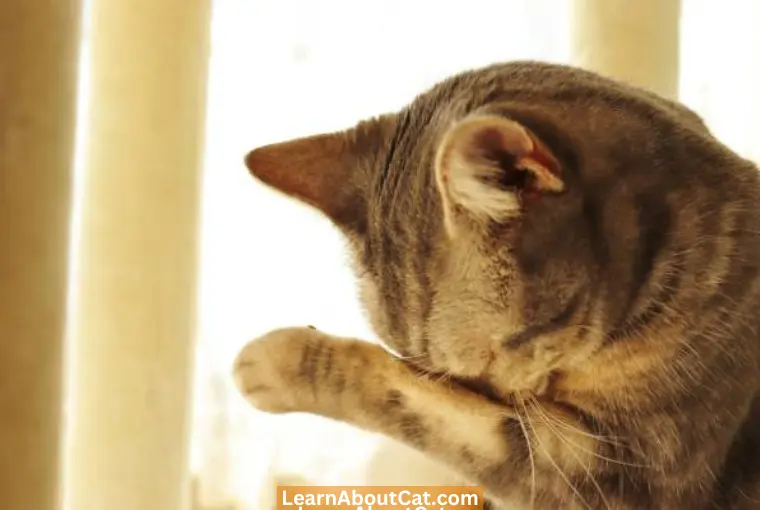
1. Establish a Routine
Cats are creatures of habit, and establishing a routine can help reduce their stress levels and prevent nighttime crying. Feed your cat at the same time each day, play with them regularly, and create a consistent bedtime routine. In this way, your cat will feel more secure and less likely to cry at night.
2. Provide Plenty of Food and Water
Hunger or thirst can cause your cat to cry at night. You should ensure your cat receives plenty of water and food throughout the day and before sleeping. Provide separate food and water bowls to avoid competition and reduce stress if you have multiple cats.
3. Make Sure Your Cat Has a Comfortable Sleeping Area
Cats need a comfortable and safe place to sleep, and providing them with a cozy bed or a designated sleeping area can help prevent nighttime crying. Pheromone sprays and diffusers can help reduce stress and create a calming atmosphere.
4. Play With Your Cat During the Day
Cats need mental and physical stimulation to prevent boredom and reduce stress. Spend some quality time with your cat during the day, provide them with toys and puzzles, and engage them in play. They will be exhausted and will sleep better at night as a result.
4. Visit the Vet Regularly
Regular veterinary checkups can help prevent and treat underlying medical conditions that may cause your cat to cry at night. Your veterinarian can also provide additional advice and support on addressing behavioral issues and reducing stress in your cat.
When to Seek Professional Help
If you’ve tried everything to stop your cat from crying at night and they continue to cry excessively, it may be time to seek professional help. Here are some signs that it’s time to consult with your veterinarian or a feline behaviorist:
- Your cat’s crying at night disrupts your sleep and affects your quality of life.
- Other symptoms, such as decreased appetite, lethargy, or vomiting, accompany your cat’s crying.
- Your cat’s crying is sudden and unexplained and is out of character for your cat.
- You’ve tried addressing your cat’s physical and environmental needs, but they cry at night.
- Your cat’s crying is aggressive or hostile, and you’re concerned for your safety.
In these cases, a veterinarian can rule out any underlying medical conditions and provide treatment if necessary. A feline behaviorist can help you identify the root cause of your cat’s crying and develop a plan to address it.
It’s essential to seek professional help sooner rather than later to ensure your cat’s well-being and improve its quality of life.
The Anatomy of a Cat’s Vocal Cords Types of Cat Vocalisation
Understanding a cat’s anatomy can help you comprehend why they make certain sounds. Unlike humans, cats have a unique vocal structure that enables them to produce various vocalizations, including meowing, hissing, growling, purring, chirping, and even trilling. Each sound has a different meaning and is used to communicate different things.
The vocal cords of cats are positioned at the top of their trachea, and when they make sounds, the air passing through these cords vibrates, creating different pitches.

1. Meowing
To communicate with their mothers, kittens meow a lot. Cat meows are well-known; however, adult cats prefer to speak with people rather than each other.
Cat meows aren’t all the same. The usual meow asks for something sound, with a mid-length duration and mid-pitched tone.
A short high-pitched meow, which might be accompanied by rubbing on your legs, typically says hello.
A long, drawn-out meow usually signals that your feline buddy wants something special, such as supper. Repeated meows may indicate that your cat is excited, but high-pitched meows may indicate that your cat is terrified or wounded. Low-pitched meows indicate dissatisfaction.
Interesting Reading: Why Does My Cat Meow At The Door?
2. Snarling or Growling
Frequently, growling or snarling are aggressive noises accompanying hissing and expressing fear, wrath, or a territorial threat.
A snarling or growling cat displays the basic protective body stance. It’s a clear warning to keep your distance, and it may also be aimed at people.
3. Yowling
A yowl is a long, drawn-out meow used to communicate stress, discomfort, territorial concerns, or mating issues.
If your cat is yowling nonstop, a medical issue might require a veterinarian trip. If your cat hasn’t been spayed or neutered, his yowling might indicate he’s seeking a companion.
Occasionally, a bored cat may yowl. Give your cat plenty of attention and provide plenty of amusement.
4. Hissing
They mostly hiss if your cat is afraid, furious, or in pain. With an arched back, puffed hair, twitching tail, flattened ears, and an open mouth bearing the fangs, With the sound comes a guarded, combative demeanor. Cats have been known to hiss and spit on occasion.
If your pet’s hissing is unprovoked, it might indicate they suffer from an undiscovered illness.
Strategies To Normalise Your Pet Cat
- Check out your cat if you believe he is crying:
- Circumambulate his body with your hand (check for wounds and lumps).
- Check to see if he’s breathing properly.
- Look for any discharge from his lips, nose, or eyes.
- Examine his litter box to see whether it’s in good shape.
- Look for anything strange in his private bits.
Frequently Asked Questions
Do cats sound like babies when they cry?
No, cats don’t sound like babies when they cry. While some cats may produce a high-pitched sound when they cry, it’s not like a baby’s cry.
Sometimes they may produce watery discharge from their eyes when upset or experiencing an eye infection.
Why do male cats make weird noises at night?
When a male cat is in heat and searching for a mate, he makes strange noises at night. These noises can be loud and unsettling but usually subside once the mating season ends.
What kind of wild cat sounds like a baby crying?
No specific wild cat sounds exactly like a human baby when crying. However, some species of wild cats, such as lynx or bobcats, produce high-pitched sounds that can be mistaken for a baby’s cry.
Why is my kitten suddenly whimpering in her sleep?
This type of sleep usually involves the kitten kicking, jerking, and moving her legs, tail, and head, as well as crying or whining. While she’s sleeping, she performs these motions to build muscle strength.
What does it signify when a cat meow?
Usually, high-pitched meows may signal that your cat is scared or injured, while repeated meows may suggest that your cat is enthusiastic. Low-pitched meows show dissatisfaction and are a means for your feline buddy to inform you that you’ve made a mistake.
Final Words!
Cats are complex creatures that communicate in various ways, including through vocalizations. While it can be unsettling to hear your cat sounding like a crying baby at night, there are often simple solutions to this problem.
To overcome their behavior, you must identify the underlying cause and take action accordingly. As responsible cat owners, we must ensure our pets are happy, healthy, and safe. Providing the best care to our feline companions depends on understanding their behavior and needs.
Related Posts:
Who is Isabella?
My name is Isabella, and I am a dedicated and knowledgeable cat enthusiast. With years of experience caring for cats and a deep love for felines, I made a mission to help other cat lovers navigate the challenges of cat ownership.

